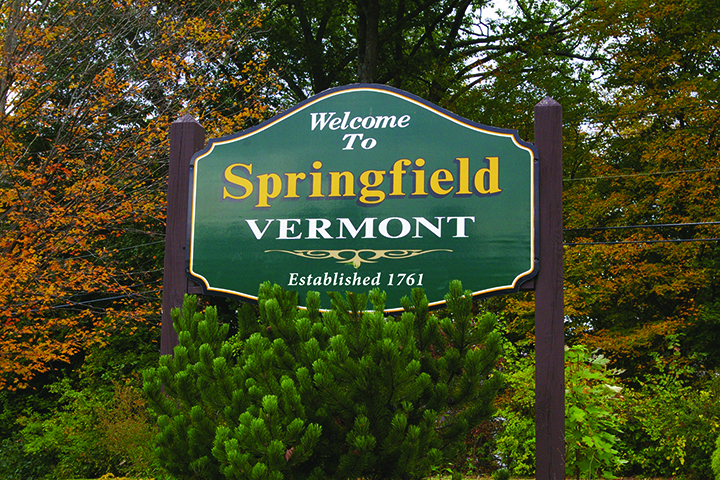SPRINGFIELD, VT. – Kelly Stettner, director of Black River Action Team (BRAT) attended Monday night’s Springfield Selectboard meeting, held on Sept. 9, at the Springfield Town Hall, beginning at 6 p.m., where town manager Jeff Mobus recognized the effort that Stettner and volunteer employees from Hypertherm in Springfield put forward for a day of cleanup along the Black River.
“The cleanup was a tremendous success,” reported Mobus. “2.4 tons of material and 125 tires [were] removed from the river/riverbank.”
Stettner told the board this was part of the annual “source-to-sea cleanup” program sponsored by the Connecticut River Conservancy.

Selectboard Chair Kristi Morris asked Stettner to please talk “about some of the other things that BRAT does, such as the water quality testing.”
“Sure,” began Stettner. Stating that she hadn’t prepared anything specific, Stettner took a moment to speak on the topic. She reported that BRAT monitors the water of the main river and its many tributaries on the watershed, which is about 202 square miles. Seven lakes and eight swimming holes are tested for bacteria, following the state’s program regarding monitoring and managing the ecology of the area.
Mobus introduced Chris Rivet, project manager from the engineering consulting firm Dubois & King, and explained that the town had applied for several grants to replace the salt shed, a large structure built in the 1980s for use by the Springfield Town Highway Department, and currently in a state of deterioration. The town received funding to conduct a scoping study coordinated by the Mount Ascutney Regional Commission (MARC) and carried out by Dubois & King to look at the issues, costs, and recommendations for repair or replacement.
Several months ago, the board heard from the owner of two properties that were to be demolished under the town’s unsafe building ordinance, and granted an appeal based on meeting certain conditions. Per a memo from planning and zoning coordinator Chuck Wise, the owner of 52 Valley Street and 67 Furnace Street has not complied with the board’s requirements, and Wise recommended enforcing the order of demolition. Wise’s memo stated Lewco LLC would be awarded the bid, and demolition would occur between November 2024 and January 2025, with full restoration completed by April-May 2025.
Vice Chair Michael Martin reviewed a proposal to designate the portion of Wall Street between Summer Street and Reed Street as one-way, as presented by the ordinance committee. After a brief discussion, the board moved to accept the amended ordinance and scheduled a public hearing for Oct. 14. At that time, Martin stated, the board could take action to approve the ordinance, which would go into effect 60 days after the public hearing, and the public will have 44 days to petition the board to rescind their decision.
Library director and Springfield resident Sue Dowdell asked the board, “Will there be a four-way stop sign at the intersection of Reed and Wall Street?”
Martin responded that the designation of traffic signs was within the purview of the police chief, but said the board would forward her concern.
Mobus presented the board with his proposed 2025-2026 budget calendar, and took a moment to invite any Springfield residents interested in the budget process to volunteer for the budget advisory committee. Applications can be found on the town website.
The board considered four proposals for the Springfield North Gateway Riverwalk Project, prepared by Stantec Consulting Services. The presentation can be found within the meeting packet on the town website. Mobus said the project was still “a few years down the road,” and the board decided to bring the engineer in again for further clarification before taking action.
Adjourning to an executive session, Morris closed the selectboard meeting. The board will meet again on Sept. 23.